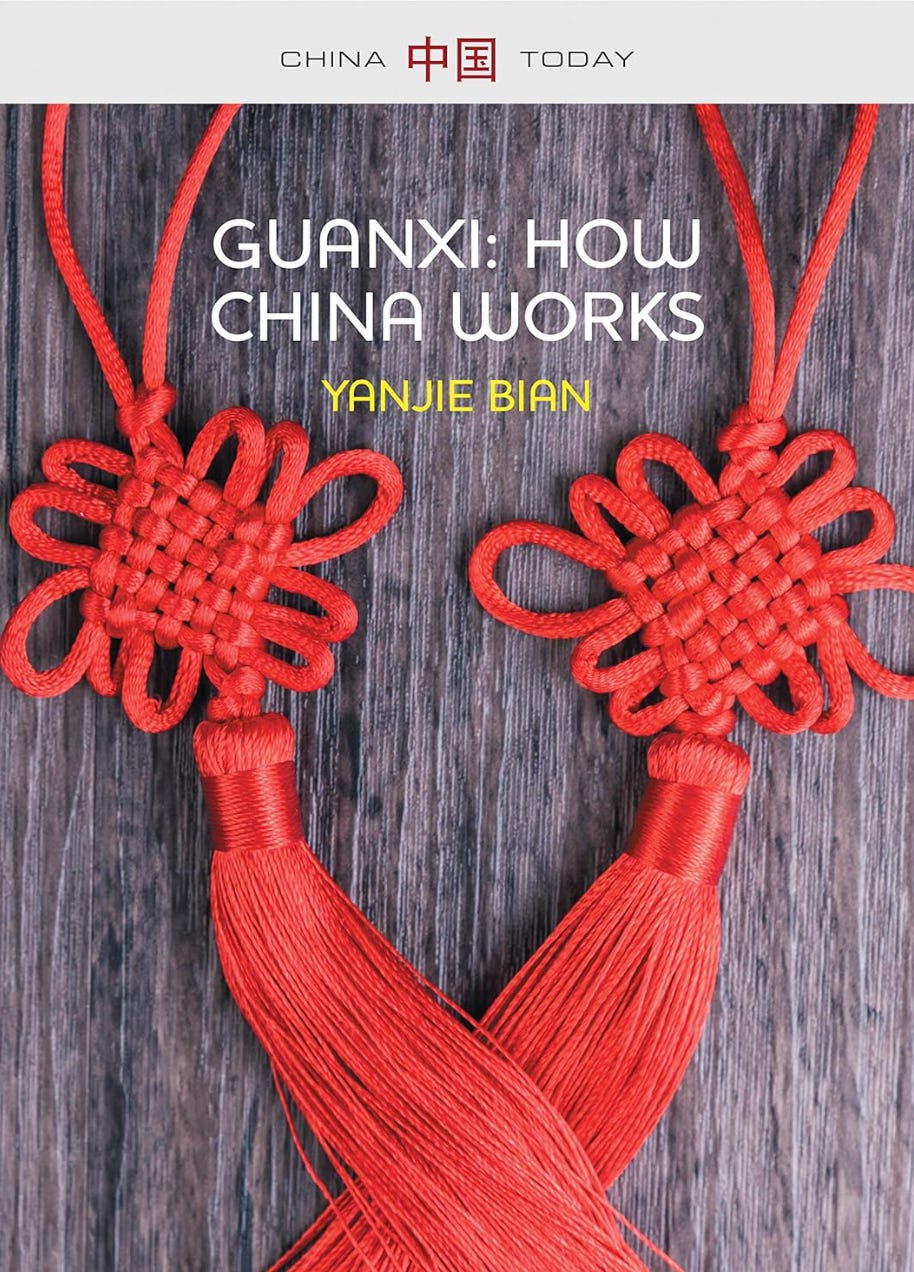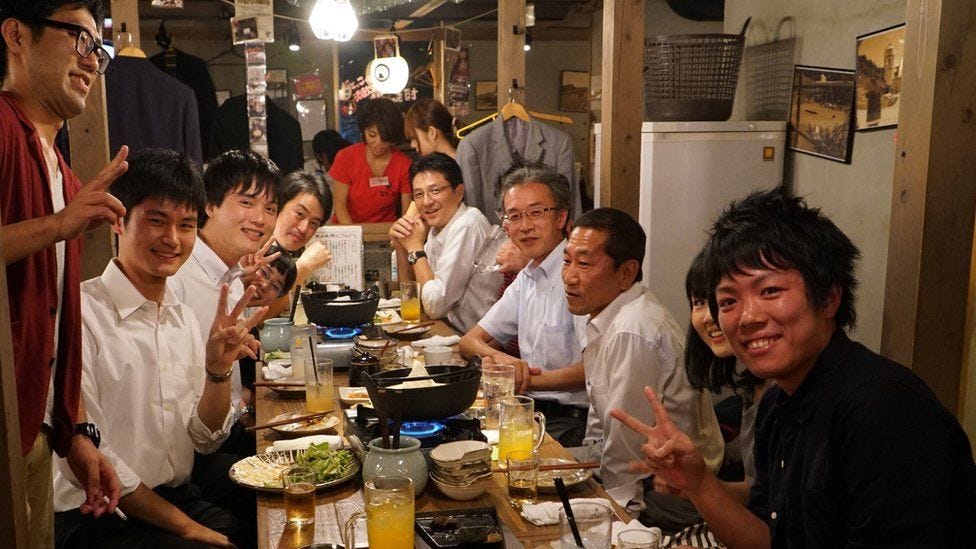How does Exogamy shape Economics & Culture?
In 1900, South Asia, East Asia, Central Asia, the Middle East and North Africa were patrilocal and patrilineal, but with one fundamental distinction. Endogamy versus exogamy. South Asians married kin, East Asians did not. This cultural difference may have mediated their responses to economic growth, in turn shaping culture.
I suggest that exogamy motivates an outward orientation for marriage, commerce and cooperation. As exogamous societies undergo economic growth and urbanisation, people seize any and all opportunities to develop ties of trust, intimacy and reciprocity.
As networks expand, people are no longer beholden to a narrow, close-knit group of gatekeepers or social policeman. With economic growth, exogamous cultures can then become more individualistic.
Marriage matters!
Exogamy and endogamy aren’t just about who marries your daughter, but with whom you barter, truck and exchange. Marriage was fundamentally about economics. So they were arranged strategically - to consolidate alliances, trust, cooperation and commerce. In India, caste panchayats punished bad behaviour by outcasting entire families, prohibiting future marriages. In the absence of rule or law or other forms of contract enforcement, this threat motivated within-jati cooperation. If families strongly trust kin, they prefer to keep business in the family.
Close-knit cooperation motivates intense concern for social approval. The smaller and more well-connected the group upon whom one depends, the stronger the social policing. If there are only a few buyers and they all know each other, ostracism is extremely scary. To maintain network inclusion, children are socialised to fear social disapproval. As a Chinese man who migrated to California remarked to me,
“Shame only works in collectivist cultures. In individualist cultures, they may disapprove, but you don’t care!”.
Guanxi ties are now very diverse
Back when East Asians were predominantly poor and rural, most people relied on kin. But as economic growth and urbanisation revved up new economic opportunities, exogamy may have encouraged wider networks that were outward and expansionist. When Chinese young adults migrated for study and work, they forged new ties. Today in China, guanxi ties have diversified far beyond kin.
‘Guanxi’ is a close, personal and resourceful relationship between two individuals - explains Yanjie Bian in “Guanxi: How China Works”. These relationships are based on ‘trust, intimacy and mutual reciprocity’. Parties feel mutual affection, reciprocal obligations, and mutual respect.
One actor performs a favour and another later reciprocates. Frequent social contact, social eating together, exchanging gifts at personally significant events, showing care and loyalty all strengthen guanxi. One builds social capital by gaining a reputation for generosity, as well as capacity to build bridges and expand networks.
Crucially, these ties can built with anyone - relatives, friends, classmates, neighbours or colleagues. Non kin may even be described as family. The Chinese term ‘gan qin’ (干亲) means ‘nominal kin’ or ‘ritualized kin’. Friends may also call each other ‘sworn brothers’ (把兄弟, ba xiongdi). Another word for intimacy is ‘亲如一家’ (qinru yijia, felt like one family.
In the diagram below, Yanjie Bian sketches an example of guanxi ties.
How much guanxi is with non non-kin?
To quantify the extent of non/kin ties, Yanjie Bian analysed the 2012 Chinese General Social Survey (CGSS). Participants were asked how many personally significant contacts they made on an ordinary day with kin and non-kin:
54% said they have 1-5 contacts with non-kin
13% have 6-10
15% have more than 10.
Private firm owners typically have 16 non-kin contacts a day, while professionals usually have 9. Chinese commerce clearly involves non-kin.
In another study, over 400 households in Shanghai, Tianjin, Wuhan, and Shenzhen were asked to log their daily activities over New Year celebrations. Kinship remains primary, but guanxi ties go far beyond the family. 65% gave gifts to friends.
In a 2003 survey of 830 firms in the Pearl River Delta, 97% mobilised capital from guanxi networks, 62% of this was from non-kin.
Over the 21st century, guanxi ties actually became more important. Chinese people increasingly say that they gained their job through guanxi (from family or friends).

Why does East Asian corporate culture often involve alcohol?
East Asian corporate culture is renowned for boozy nights out. Why is this? My suggestion is that social ties remain imperative in these collectivist cultures, but because of exogamy they are built anew. Alcohol makes people happy, have fun and build rapport. It lubricates network expansion.
A business man from Liaoning told me that through many boozy nights outs, he was able to cultivate rapport and convince clients:
“There are many cases that the customer did not want to purchase our company’s products (when I was in the SOE), but due to drinking, drinking, drinking, drinking for a long time, the customer, finally chose the product from our company”.
They did not have a prior relationship, there was no kinship. Over many beers, clients were cajoled.
Economic growth enables exogamous cultures to become more individualistic
Endogamous societies trust close-knit kin, so they prefer to socialise, marry, and do business together. Thus even as Indian grows economically, caste persists. Wealthy Saudi Arabia likewise remains extremely tribal, with high rates of cousin marriage.
I suggest that exogamy motivates a stronger outward orientation for marriage, commerce and cooperation. So, as exogamous societies undergo economic growth and urbanisation, people seize any and all opportunities to develop ties of trust, intimacy and reciprocity.
As these networks expand, people are no longer beholden to a narrow, close-knit group of gatekeepers or social policeman. This enables cultural liberalisation. Because business isn’t based on endogamous bonds, Hong Kong women aren’t socialised to marry and stay put. As Lynne Nakano discusses in her excellent new book, many happily remain single (without shame or stigma). Divorce is increasingly tolerated.
East Asians still prioritise filial piety, but this is vertical loyalty to parents rather than wider solidarity to lineage clans. As guanxi commercial ties increasingly involve non-kin, the meaning of marriage has shifted from consolidating trusted networks to individual fulfilment.











Just a quick comment regarding Hong Kong and filial piety -
My wife is from Hong Kong, I'm Spanish, we have 3 kids. One of the places where our values differ the most is on -let's call it- "family obligations". For me, 'duty' flows downwards, i.e. it's the parents' duty to make sure your children are succesful, educated, happy citizens. For her, it flows upwards, in that children owe their lives to their parents, so they have to pay back the favor by taking care of them. In such an individualistic society like Hong Kong, parents don't affect your life choices, but children need to pay up to 1/3 of their salary to their parents, etc. From this point of view, children schooling and education is an investment in yourself - by setting them up for a good career path, you ensure they will be able to pay more money back to you in the future.
From an Indian POV, I completely concur. Caste continues to persist and, in my opinion, and many others, doesn't respect civil and personal liberties, often reducing them to choices exercised by the parents of the children.
What does this add up to?
1. Many marriages between business families also happen within religious and caste lines, so it's not a case of marrying for money but rather keeping the money circulating between these dynasties
2. Since the male person would not just be the head of the family but also the patriarch of the family business, many men lost out on chances to expand their employability; stories abound within my friend circle where the person would state, I am going abroad to get an MBA but in the end, I will probably grow the family business whether I like it or not
3. Finally, in my two years working in Bangalore and now living in Australia, I have come across numerous stories where the person would state that they love their lives in the US or Australia or X country but would come back home to marry because that is what feels right; now the logic aside, one thing that always got to me was why did they not want to marry an Indian girl who grew up in those countries?
These are still personal observations and I haven't gotten into the weeds to see if they are supported by the numbers